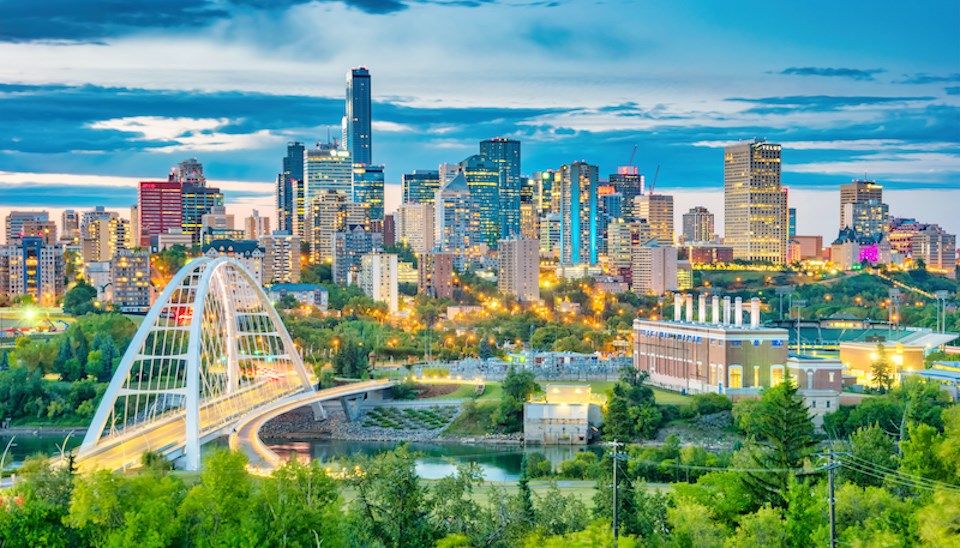Dow wanted to expand its Path2Zero zero-emission project from outside Fort Saskatchewan with a significant investment, but didn’t think the province’s depreciation rates were suitable.
No problem: the rates were changed by the province – in seven days.
The international pulp and paper behemoth, Mondi, wanted to promptly get environmental permits to move into the province.
No problem: the permits came from the province in a speedy 90 days.
The problem was: the province was Alberta, not British Columbia.
And a bigger problem looms: Alberta is more aggressively big-game-hunting for investment now in Vancouver. It has opened an office here of the prodigious Crown corporation, Invest Alberta, and hired what it calls an “investment attraction advisor” – Brock Lalla, a former economist with PwC’s Canadian economic and policy practice.
Based on its history of less than a half-decade, it would not be surprising to see some serious migration and expansion of B.C. businesses into our neighbouring province.
In four years, Invest Alberta has attracted $24.9 billion in investment from around the world, counting for 33,481 jobs. Its CEO is himself a Vancouver expat appointed in 2021, Rick Christiaanse, and in keeping with the red-tape-averse culture, he reports directly to Premier Danielle Smith and not into the province’s bureaucracy.
It is old news now that Alberta can put to shame most anything British Columbia might try to make for a better business and worker climate. Corporate taxes and housing prices are lower, salaries are higher, regulations are changed faster, construction permits are swifter. Little wonder an Angus Reid Institute poll earlier this year indicated more one-third of British Columbians – and half of all young people – were seriously considering leaving because of housing unaffordability. But housing costs are simply a symptom of a wider ailment, some of it tangible and some of it attitudinal.
“Alberta’s claim to fame is that it can get things done,” Christiaanse told me. “We were in the wilderness for 10 years. We got desperate enough here that we had to figure out how to do this.”
What it does is court investment, offering a concierge-like tailored suite of services to smooth the entry into the market – navigational assistance to streamline setup, marketing intelligence, networking leads, after-care services – in using its 17 offices worldwide to scout and secure significant investment.
What it doesn’t do, though, might surprise you: It won’t write any cheques when business comes calling. It refuses to engage in the race to the bottom that many American cities and states will.
“Our cheque-writing capacity is zero,” he says. “If you’re looking for a subsidy, that’s not our province.”
Christiaanse, whose career includes stints as chief operating officer of the Skidmore Group and senior director of sales and marketing for Telus International, has been campaigning of late to demonstrate Alberta is not simply an oil and gas province.
The province leads Canada in renewable energy growth. Amazon is building its first Canadian wind farm in southern Alberta; it already owns a solar project in the province, one of the largest in North America. Edmonton alone has four $1-billion-plus hydrogen energy plants under construction. Japanese firms Sumitomo and Itochu have extensive climate-change mitigation projects there.
It is Alberta’s access to abundant energy, though, that often clinches the deal.
“B.C. can’t build any more dams,” he notes.
Mainly, he says though, business is saying: “I want stability.”
The BC NDP government has its hands full at the moment, with a large and expanding deficit, declining per capita GDP, expensive health-care challenges, a CleanBC plan that will be costly across the province’s economy and relatively little business savvy at the helm. Even former NDP premier Glen Clark chided the Eby government to focus more on wealth creation than wealth redistribution.
Christiaanse defines the challenge little differently than Clark: “We see the role as building prosperity.”
What the world is saying when it takes its investment elsewhere are three things, he notes: “Bring me food security. Bring me energy security. And lately, bring me cybersecurity.”
He plays down any B.C.-Alberta rivalry.
“We need to be aligned,” he says.
But he also notes that Alberta “had to hit rock bottom” before it initiated the changes it now offers investors as a calling card, without specifically suggesting that’s where B.C. now finds itself.
“Vancouver is an incredible place to live,” he says. “But if you’re looking to take your business to a new level . . .”
Kirk LaPointe is a Glacier Media columnist with an extensive background in journalism.





